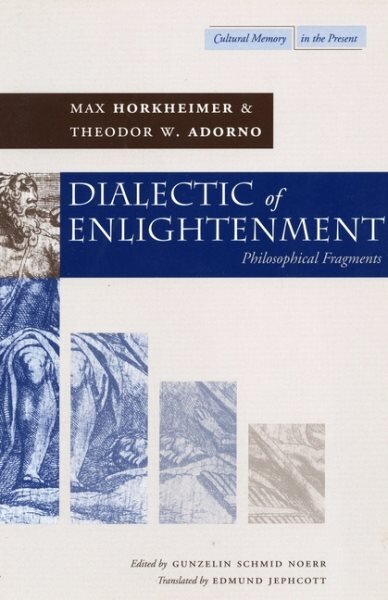-
Товары для сада
- Запчасти для садовой техники
- Триммеры
- Кусторезы, ножницы для газона
- Газонокосилки
- Пылесосы для сбора листьев, измельчители веток, очистители тротуарной плитки
- Психрометры, термометры, измерители pH, ORP
- Тележки
- Культиваторы, мотоблоки, аэраторы
- Роботы-газонокосилки
- Дровоколы
- Подметальные машины
- Садовые тракторы
- Садовые земляные буры
-
Спорт, досуг, туризм
- Туристический инвентарь
- Палатки
- Надувные матрасы и мебель
- Фляги для воды
- Туристическая мебель
- Туристические матрасы и коврики
- Спальные мешки
- Туристические, походные рюкзаки
- Биотуалеты
- Альпинистское снаряжение
- Средства для ухода за обувью, одеждой и туристическим инвентарём
- Принадлежности для автотуризма
- Средства защиты от комаров
- Товары для гимнастики и фитнеса
- Водный спорт
- Рюкзаки и сумки
- Аксессуары для массажа
- Ортезы и бандажи
- Футбол
- Ракеточный спорт
- Баскетбол
- Боевые искусства
- Палки для ходьбы
- Дартс
- Сетевой
- Насосы и иглы для мячей
- Диск-гольф
- Шагомеры, хронометры, мониторы сердечного ритма
- Гольф
- Товары для балета и гимнастики
- Бейсбол
- Верховая езда
- Ручное
- Флорбол и хоккей на траве
- Велосипеды, ролики, скейтборды
- Грузы, гантели, грифы
- Игровые столы
- Тренажеры, товары для фитнеса
- Мячи
- Аминокислоты
- Углеводы
- Протеин
- Батончики
- Другие пищевые добавки и препараты
- Энергетики
- Функциональные продукты
- Глютамин
- Креатин
- L-карнитин
- Пищевые добавки и препараты для набора массы
- Добавки и препараты для суставов
- Добавки для восстановления
- Жиросжигатели
- Добавки и препараты для похудения
- Стимуляторы тестостерона
- Витамины
-
Мебель и домашний интерьер
- Стулья для кухни и столовой
- Кухонные шкафчики
- Кухонные и обеденные столы
- Комплекты мебели для столовой
- Комплектующие для кухонной мебели
- Кухонные гарнитуры
- Столешницы для кухни
- Коллекции кухонной мебели
- Шкафчики для ванной
- Зеркала в ванную
- Комплекты в ванную
- Полки для ванной
- Аксессуары для ванной комнаты
- Коллекции мебели для ванной
- Детские кровати
- Детские матрасы
- Детские столы и стулья
- Детские диваны, кресла
- Детские кроватки
- Полки для книг и игрушек
- Детские шкафы
- Детские комоды
- Шкафчики в детскую
- Комплекты для детской комнаты
- Детские письменные столы
- Стулья для школьников
- Коробки для игрушек
- Коллекции мебели для детской комнаты
-
Бытовая техника и электроника
- Электрочайники
- Фильтры для воды
- Кофемашины
- Фритюрницы
- Блендеры, измельчители
- Коктейльницы
- Весы (кухонные)
- Особенные приборы для приготовления пищи
- Кухонные комбайны
- Миксеры
- Вакууматоры
- Вафельницы и электрические блинницы
- Соковыжималки
- Бутербродницы
- Тостеры
- Электрогрили, маринаторы
- Мультиварки
- Аппараты для газирования воды
- Кофемолки
- Мясорубки
- Сушилки для фруктов
- Проращиватели, лампы для растений
- Ломтерезки, точилки для ножей
- Аппараты для воды
- Хлебопечки
- Пылесосы
- Беспроводные пылесосы
- Моющие пылесосы
- Весы (бытовые)
- Пылесосы-роботы
- Роботы для мытья окон, стеклоочистители
- Пароочистители, оборудование для мытья полов
- Аккумуляторы для пылесосов
- Аксессуары для пылесосов
- Метеорологические станции, термометры
- Приборы для укладки и выпрямления волос
- Массажеры
- Аппараты для маникюра и педикюра
- Машинки для стрижки волос
- Электрические зубные щетки
- Фены
- Электробритвы
- Насадки для электрических зубных щеток
- Тонометры
- Эпиляторы
- Ирригаторы
- Приборы для ухода за лицом
- Согревающие приборы
- Ингаляторы
- Термометры
- Массажные ванночки
- Вентиляторы
- Кондиционеры, рекуператоры
- Обогреватели
- Увлажнители воздуха
- Водонагреватели
- Нагревательные коврики для пола и зеркал
- Вентиляторы для ванной
- Детекторы дыма, газа
- Аксессуары для вентиляционного оборудования
-
Товары для детей и младенцев
- Для ухода за младенцем
- Приспособления для кормления
- Детские коляски и аксессуары
- Автокресла и аксессуары к ним
- Товары для мам
- Манежи для детей
- Шезлонги и качели
- Детское питание
- Матрасы для новорожденных
- Слинги, эргорюкзаки
- Ходунки
- Отпечатки для младенцев
- Подгузники
- Детские кроватки
- Детское постельное бельё
- Приданое для новорожденного
- Товары для безопасности детей дома
- Одежда для новорождённых
-
Компьютерная техника
- Внутренние жёсткие диски (HDD, SSD, Hybrid)
- Оперативная память (RAM)
- Корпуса
- Видеокарты (GPU)
- Материнские платы
- Компьютерные вентиляторы
- Аксессуары для компонентов
- Блоки питания (PSU)
- Кулеры для процессоров
- Термопасты
- Процессоры (CPU)
- Аксессуары для корпусов
- Оптические устройства
- Контроллеры
- Водяное охлаждение - аксессуары
- Звуковые карты
- Водяное охлаждение - комплекты
- ТВ-тюнеры, FM, видеокарты
- Кулеры для видеокарт
-
Духи, косметика
- Пудры, базы под макияж
- Помады, бальзамы, блеск для губ
- Лаки, укрепители для ногтей
- Тушь, средства для роста ресниц, тени для век, карандаши для глаз
- Средства для маникюра и педикюра
- Косметички, косметические зеркала
- Кисти для макияжа, спонжи
- Карандаши, краска для бровей
- Бронзеры (бронзаторы), румяна
- Накладные ресницы, керлеры
- Кремы для лица
- Средства для очищения лица
- Сыворотки для лица, масла
- Маски для лица, патчи для глаз
- Сыворотки, кремы для век
- Массажеры для лица, инструменты для чистки лица
-
Мобильные телефоны, Фото и Видео
- Чехлы для телефонов
- Защитные пленки для телефонов
- Мобильные телефоны
- Зарядные устройства для телефонов
- Зарядные устройства Power bank
- Кабели для телефонов
- Держатели для телефонов
- Карты памяти для телефонов
- Аксессуары для телефонов
- Моноподы для селфи («Selfie sticks»)
- Беспроводная гарнитура
- Аккумуляторы для телефонов
- Запчасти для телефонов и инструменты для их ремонта
- Наушники
- Аксессуары для фотоаппаратов
- Осветительное оборудование для фотосъемок
- Цифровые фотоаппараты
- Карты памяти для фотоаппаратов, камер
- Фотоаппараты мгновенной печати
- Штативы для фотоаппаратов
- Аккумуляторы для фотоаппаратов
- Футляры, чехлы для фотоаппаратов и объективов
- Объективы
- Фильтры для объективов
- Зарядные устройства для фотоаппаратов
- Заряжаемые батарейки
-
Сантехника, ремонт, вентиляция
- Вентиляторы
- Кондиционеры, рекуператоры
- Увлажнители воздуха
- Метеорологические станции, термометры
- Эфирные масла для диффузора
- Осушители воздуха, влагопоглотители
- Очистители воздуха
- Вентиляторы для ванной
- Аксессуары для вентиляционного оборудования
- Механические инструменты
- Электроинструменты
- Ящики для инструментов, держатели
- Стеллажи, полки
- Стремянки
- Крепежные изделия
- Металлодетекторы
- Промышленные весы
- Лопаты для снега, толкатели
- Складные системы для полок
- Снегоуборщики
- Моющее оборудование высокого давления
- Камеры видеонаблюдения
- Дверные звонки, глазки
- Системы безопасности, контроллеры
- Датчики
- Детекторы дыма, газа
- Домофоны
- Cигнализации
- Принадлежности для систем безопасности
- Батарейки
- Выключатели, розетки
- Удлинители
- Фонарики, прожекторы
- Светодиодные ленты
- Электрические лампы
- Зарядные устройства для элементов питания
- Источник питания
- Комплектующие для солнечных электростанций
- Таймеры, термостаты
- Текстильные провода и клеммные колодки
- Монтируемые светильники, светодиодные панели
-
Кухонные товары, товары для домашнего хозяйства
- Кухонная утварь
- Стаканы, фужеры, кувшины
- Посуда, тарелки, обеденные сервизы
- Кастрюли, скороварки
- Cковородки
- Посуда для хранения еды
- Формы, посуда для выпечки
- Ножи и аксессуары для них
- Термосы, термокружки
- Чайники, кофейники
- Столовые приборы
- Специи, наборы специй
- Емкости для специй, измельчители
- Разделочная доска
- Посуда и принадлежности для консервирования
- Фляги, бутылки для воды
- Одноразовая, тематическая посуда
- Фильтры для воды
-
Одежда, обувь и аксессуары
-
Автотовары
-
Товары для животных
- Сухой корм для собак
- Средства по уходу за животными
- Лежаки, домики
- Переноски, сумки
- Миски, ящики для корма
- Ошейники, подтяжки для собак
- Лакомства для собак
- Поводки для собак
- Игрушки для собак
- Дорожные принадлежности
- Консервы для собак
- Витамины, добавки, средства от паразитов для собак
- Косметические средства для животных
- Одежда для собак
- Средства для дрессировки собак
- Сухой корм для кошек
- Когтеточки
- Консервы для кошек
- Наполнители для кошачьих туалетов
- Туалеты для кошек
- Игрушки для кошек
- Поводки и ошейники для кошек
- Лакомства для кошек
- Витамины, добавки и средства от паразитов для кошек
- Лежаки, домики
- Переноски, сумки
- Миски, ящики для корма
- Косметические средства для кошек
- Средства по уходу за кошками
-
Эротические товары
n18.lt специализированный магазин для взрослых
Товары в специализированном магазине для взрослых n18.lt могут видеть только посетители не младше 18 лет. Информация, распространяемая на данной веб-странице, может оказывать негативное воздействие на лиц младше 18 лет.Посмотреть товары -
Подарки, праздничная атрибутика
-
Защитные, дезинфицирующие средства, медицинские товары
- Маски pеспираторы
- Защитные стенки, дозаторы для антисептика
- Дезинфицирующие средства
- Одноразовые перчатки
- Дезинфицирующие чистящие средства
- Защитные очки, экраны для лица
-
Книги
- Продукты питания
-
Умный дом
- Аутлет
-
Товары для офиса, школы, творчества
Показать больше категорий






